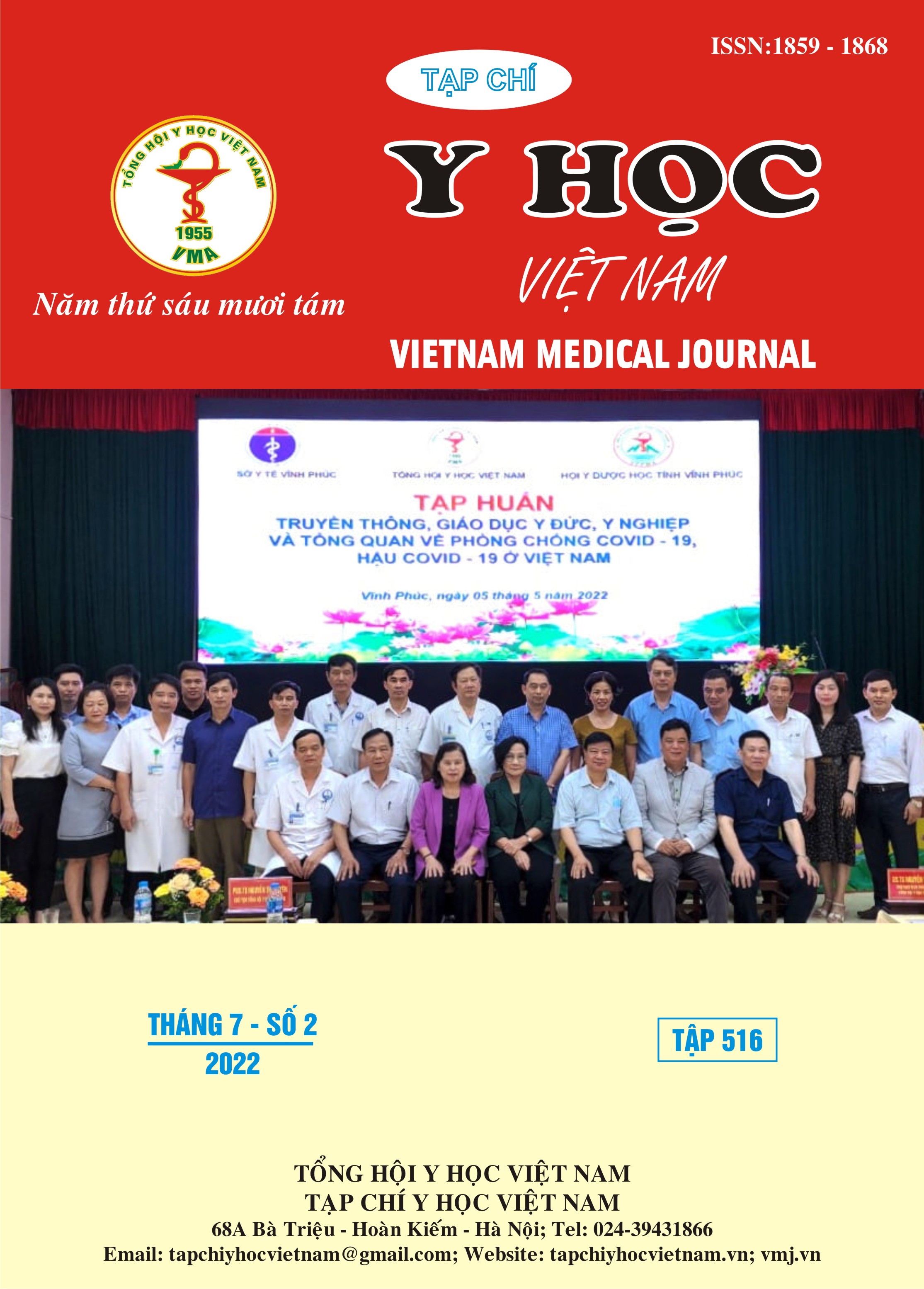SOME SEMINAL CHARACTERISTICS, KAROTYPE AND THE TREATMENT OPTIONS IN INFERTILE MEN WITH ISOLATED AND COMBINED AZFc MICRODELETIONS
Main Article Content
Abstract
Objectives: To investigate some seminal characteristics, karotype and the treatment options in infertile men with isolated and combined AZFc microdeletions. Material and method: A retrospective, cross-sectional study method in 144 Vietnamese men with isolated and combined AZFc microdeletions in patients with oligospermia or azoospermia at Hanoi Hospital of Andrology and Infertility from December 2016 to June 2021. Result: Isolated AZFc microdeletions accounts for the majority (54.17%) of AZFc microdeletions. 24.31% of patients with AZF microdeletions were accompanied by chromosomal abnormalities. Deletion of AZFa with AZFc resulted in 100% azoospermia. 40.97% of patients with AZF microdeletions have not been performed assisted reproduction. Most deletion basis zones of AZFc resulted in severe oligospermia. Conclusion: The semen analysis of patients with isolated AZFc microdeletions was the best, deletion of AZFa with AZFc resulted in 100% azoospermia. 24.31% of patients with AZF microdeletions were accompanied by chromosomal abnormalities. 40.97% of patients with AZF microdeletions have not been performed assisted reproduction.
Article Details
Keywords
Azoospermia, karotype, AZF, oligospermia
References
2. Tiepolo L, Zuffardi O. Localization of factors controlling spermatogenesis in the nonfluorescent portion of the human Y chromosome long arm. Hum Genet. 1976 Oct 28;34(2):119–24.
3. Waseem AS, Singh V, Makker GC, Trivedi S, Mishra G, Singh K, et al. AZF deletions in Indian populations: original study and meta-analyses. J Assist Reprod Genet. 2020 Feb;37(2):459–69.
4. Reijo R, Lee TY, Salo P, Alagappan R, Brown LG, Rosenberg M, et al. Diverse spermatogenic defects in humans caused by Y chromosome deletions encompassing a novel RNA-binding protein gene. Nat Genet. 1995 Aug;10(4):383–93.
5. Raicu F, Popa L, Apostol P, Cimponeriu D, Dan L, Ilinca E, et al. Screening for microdeletions in human Y chromosome--AZF candidate genes and male infertility. J Cell Mol Med. 2003 Mar;7(1):43–8.
6. Dohle GR, Halley DJJ, Van Hemel JO, van den Ouwel AMW, Pieters MHEC, Weber RFA, et al. Genetic risk factors in infertile men with severe oligozoospermia and azoospermia. Hum Reprod. 2002 Jan;17(1):13–6.
7. Vogt PH, Bender U, Zimmer J, Strowitzki T. Human Y Chromosome and Male Infertility: Forward and Back from Azoospermia Factor Chromatin Structure to Azoospermia Factor Gene Function. Genetics of Human Infertility. 2017;21:57–73.
8. Vijesh VV, Nambiar V, Mohammed SIK, Sukumaran S, Suganthi R. Screening for AZFc partial deletions in Dravidian men with nonobstructive azoospermia and oligozoospermia. Genet Test Mol Biomarkers. 2015 Mar;19(3):150–5.


